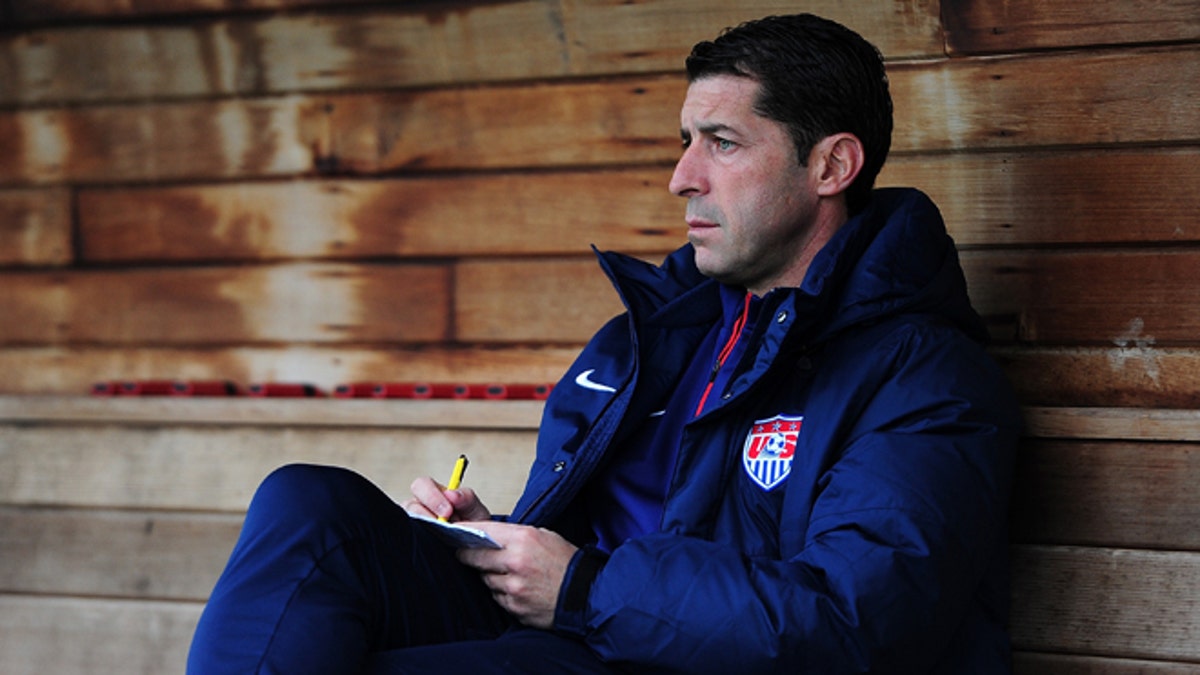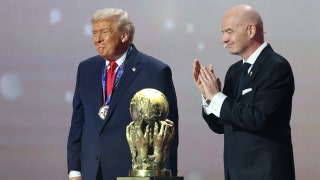
PLYMOUTH, ENGLAND - MARCH 29: Tab Ramos, Head Coach of USA U20s looks on ahead of the International Friendly match between England U20 and USA U20 at Home Park on March 29, 2015 in Plymouth, England. (Photo by Dan Mullan/Getty Images) (2015 Getty Images)
In a move to keep up with the rest of the world, U.S. Soccer announced major changes in two areas of its youth soccer program last summer. The rules go into effect in 2017, but many youth programs all over the country are starting to implement them already.
"With these initiatives, we’re more likely to have players better prepared down the road," said Tab Ramos, U.S. Youth Technical Director and the under-20 Men’s National Team head coach, said in a statement.
The first change will be adopting more small-sided games. Mandated to come by August of 2017, this rule will decrease the number of full 11-on-11 competitions and increase 9-on- 9 and 7-on-7 games.
The idea is to make it so that kids get more touches on the ball, have more tactical decisions to make and, hopefully, have more fun. It should allow players to learn tactics quicker, gain experience at different positions, feel more personally involved in games and increase fitness.
All of which should make it a more fun and enjoyable game.
"What we’re trying to do is to help players develop by putting them in an environment where they are constantly involved in the play," Ramos said in the statement. "That could be with the ball and that could be without the ball, but when you make things small-sided, everyone is somehow involved in the play, whether that’s in defending, in cutting angles, in cutting the ball back. You’re always in the play."
The second change will be a shift from a school-year to calendar-year basis for grouping players. Currently, groups are based on the school year, with the cutoff date being July 31.
The U.S. and Canada are the only FIFA members currently using the school calendar; all others go by the calendar year, with Dec. 31 as the cutoff.
Under the new rules players will still be allowed to “play up” in an older age group, if needed.
“The two things this accomplishes are, it makes things easier, and it gets us on the same calendar with the rest of the world," Ramos said. "So now it becomes easier to identify for U.S. National Teams and everything else when it comes to international soccer.”
U.S. Soccer has always been a step behind international football, perhaps due to a stubbornness not to follow someone else’s model – even if it is a winning model.
Critics of the changes complain that existing teams will be broken up because of the age change, and that small-sided games will not mirror the full-sized game.
These detractors miss the point altogether. Players need more touches on the ball, need to play for different teams with different players, different coaches and in different positions. This is how players develop; how they grow as players.
In a culture hell-bent on winning, it seems that fostering good players, with solid fundamental skills becomes a secondary concern.
These changes will cause some headaches in the short term, but they are exactly what youth soccer needs.
Video of the week
Check out this world-class volley by second-division Portuguese player Hugo Firmino for Lisbon's Clube Oriental. Now, that’s technique!
From the wires
A police officer in the United Arab Emirates has appeared in court over filming himself holding Barcelona star Lionel Messi's passport.
Abu Dhabi's state-run “The National” newspaper reported on Tuesday that the police officer appeared in Dubai's Court of Misdemeanors over the posting the video to the mobile phone app Snapchat in December.
The newspaper said the video included the caption: "Shall I burn the passport or just put it back!"
The police officer, identified as J.M., faces a charge of violating Messi's privacy. He said he made the video in jest and had the permission of Messi's bodyguard.
The forward was in Dubai to receive the Player of the Year award at the Globe Soccer Awards. Messi also is a global ambassador for the coming Expo 2020 in Dubai.








































